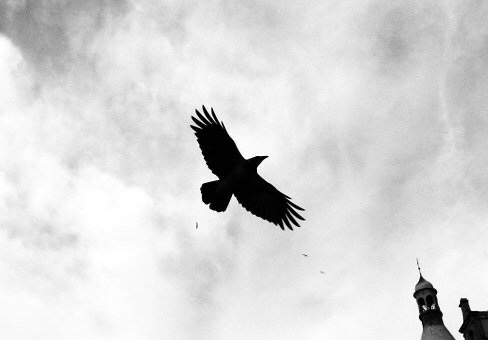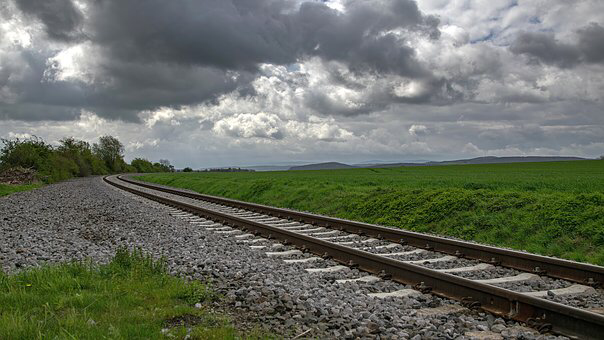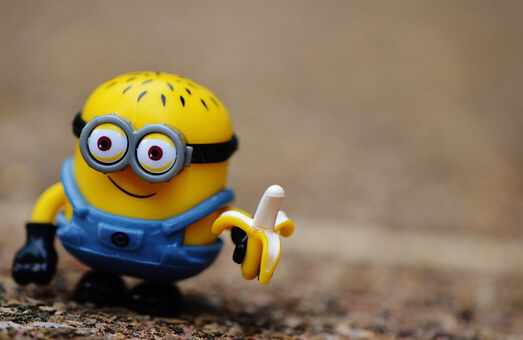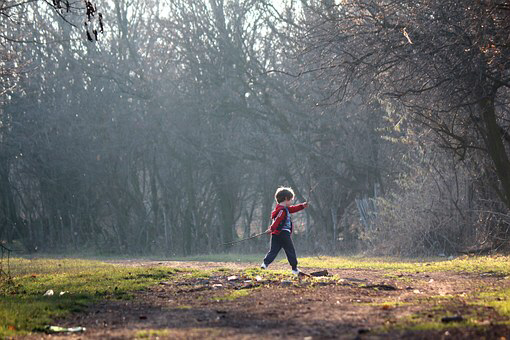|
There were shadow puppets on the walls, drawers of trinkets lined the edges. Fascinating objects with an old tv perched on top. Heavy curtains always drawn and an old silver radio playing classical music. The red lines moving up and down as the music played.
The medicine on his tray was carefully measured. It was ordered, like the days. Steady, sameness. He made light of them so I wouldn’t worry. I was too naïve to worry, I felt only curiosity for all the pills and the red lines that moved with the music. Every morning we talked about the world. He ate breakfast and pills off his tray while the radio played. I asked incessant questions which he answered with endless patience. We discussed our musical preferences and many other things. He studied my toys in amazement, as fledgling technology began to seep into 90’s creations. Our curiosity about each other permeated the mornings. He grew beans in the back garden and tomatoes in a green house. There was a compost bin full of slaters, which I found endlessly fascinating. There was an epic two story playhouse, full of his old pharmacy medicines. In my mind, it was big enough to live in. There were stairs that adults could climb and everyone could stand up inside. The door was always locked, but my curiosity would always try it. I remember my mother’s face when we went up there after he died, to clear it out. He retired and emptied the contents of his pharmacy into the playhouse. I don’t know what she did with it, I think some phone calls were made. His potions and pills were stored on shelves in glass bottles covered in dust and spider webs. I wasn’t allowed to touch anything. The glass bottles had old fashioned labels that he’d declared the contents on. Words that meant nothing to me; but when they were read we were swiftly removed. Some expletives were uttered. That was the last time I went in the playhouse. The adventure was whisked away just like the lines on the radio, the conversations and the tray of pills. There was a shed where he made things out of wood. He made us rakes for the school holidays in autumn. We didn’t have deciduous trees where we lived. I remember the earthy smell of decaying leaves, the crunch under our feet and that he saved them for us to rake up and put in the wheel barrow. I used to throw them in the air and kick them. He made me a playhouse that could fold up and come out when we visited. It was probably in response to my endless requests to go inside the big one. It was very skilfully made, but sadly lacked all the allure of the big one. I remember trying to spare his feelings. My childhood efforts were littered with transparency. We made the trip back to the airport in his immaculately maintained green Tirana. There were always odd fellows in the glove box. I ate them and sang the theme song to the teenage mutant ninja turtles as we drove back to Christchurch to get on the plane. I used the journey to move myself back to the fm tuned radio in the place where the curtains were always open and overlooking evergreen trees.
0 Comments
A few days before winter, some people clean their chimneys; we clear the hallway. Bags of equipment will soon fill the narrow space. The people in green uniforms need space for pink ampules, for masks that mist, for machines that measure and for all the bags they carry. Breathing tubes are like a hallway: always needing to be cleared to make space. Children bring clutter to hallways and airways. A few days before winter, I start to clear both. The people in green uniforms will come to help me when the passages become too narrow for air. Clear the hallway. Unlock the door. Let them in. Breathe. Impractical and strange dream like thoughts come late at night when sleep is halted. Why isn’t there a road designed as the crow flies? Or a zip line? Surely the wind would fill his lungs with air… Or scare him to death. On these nights, my mind sees his lungs like a parachute, they fill with air as he speeds over the city. I remember my apartment in Dublin. Crows used to sit outside the window on the balcony. They looked like they were trying to steal my soul. I shut the curtains to hide from their creepy stares. I remember I’ve only seen crows in flat places. Are they unable to fly straight over hills? It’s probably a myth anyway. I don’t possess an encyclopaedic knowledge of crows. It seems easy to manage a straight line when there are no obstacles. Our world is too complicated for crows or straight lines. The people in green uniforms walk into the little room off the hallway. He clings tighter. Their eyes read machines and they interpret numbers, pallor, resp rates. They come with compassion and kindness when time allows. They see the needs in the room beyond the machines and medicine. They sometimes take over as the numbers get worse. 88. Everybody scurries down the hallway and through the front door. They take him away his airways are too messy. With lights flashing they drive too straight through the bends. It’s as if they are trying to draw a straight line to the hospital. If you drive as the crow flies it’s faster. The green uniforms straighten roads designed by lovers of corkscrews. The line between our house and Newtown has too much clutter: hills, houses, structures, water. Clear the hallway and make a clear road for those that need to breathe. I wonder if I should have lived closer? Fucking real estate! Thankfully there are no creepy crows, just the compassionate people dressed in green. In winter and spring I clear the hallway, unlock the door and let them in. They drive Faster, straighter, like a zip line to Newtown with lights flashing. Straight, as the ambulance flies. I met up with a friend of my late husband’s recently. We were reflecting on how we’d changed in the year since his death. One of the lighter things that came through for both of us, was the absolute loss of shame. The experience made us realise, that most stuff doesn’t really matter; except seizing the moments of joy. For both of us, joy came in less than sensible places. This was probably because of the need to face really big things. It was a survival tactic to dive into the ridiculous, enthusiastically and often. Grief made me fail to notice the decline and desperate need to replace certain aspects of my wardrobe. Recently I met a friend for coffee. As I raced down Lambton Quay, through the hordes of well dressed people, my aged undergarments lost the will to go on. They slid centimetre at a time, threatening to low ride out the bottom of my skirt. My backside was hanging out freely inside my skirt and knicker retrieval was diving into the undignified. There was a distinct possibility I’d turn my manky old disasters into pavement sweepers. The prospect of sweeping the pavement with my underwear looped around each ankle, felt like a very bold life choice. I made an emergency plan in case of total wardrobe malfunction: pavement roadkill. I would step out of them, and keep walking like nothing had happened. Nobody wants to be walking down the street, like a penguin, due to elasticated leg restriction. There was always a risk that the person behind me would feel morally compelled to chase me down the street, attempting to return my lost property. With a wry grin, I hitched those undies furiously at the sides, as I delighted in telling my friend about the state of my underwear.  I got to the café, and my friend was waiting at a table. We staged an intervention and I vowed to replace all the old pairs. In the coming weeks, a whole new civilised fleet was purchased. I weeded out the dead ones and dutifully hiffed them out. One in, one out.
As the days went on, none of my new fleet seemed to be in my clean laundry basket. The old ones were being thrown out, but nothing was coming through the clean laundry to replace them. My anticipation at getting to stride out with confidence, increased daily. Nothing came. I was again reduced to wearing my last forgotten pair. A pair guaranteed to fall to the ground under the slightest duress. If I sneezed, it would all be over. I diced with public humiliation as I picked up some urgent items at the supermarket. A thought entered my mind; there would be cameras. I imagined my face on a poster, accompanied by a disturbing image of some dilapidated undergarments. The poster read, ‘attention: we have a rogue underwear deserter. Please notify a staff member if you recognise this woman.’ As I catastrophised my fate in the milk aisle, the problem became clear. Upon arrival at home, I questioned my son about the laundry and what was happening to it. My son’s job is to sort out the clean washing, and direct it to each person’s bedroom to be put away. He said, “oh yeah, there was a blue thing and a red thing and a black thing, but I didn’t know what they were, or who they belonged to, so I just put them back in the wash.” It turns out, he didn’t recognise civilised human underwear. His underwear recognition skills, only extend to dilapidated pavement sweepers. https://www.littleshadow.org.nz/blog/theo. Here’s a link to something I’ve written for little shadow.
One New Year’s Eve years ago when I was young, free and un-precious enough to cope without a roof or electricity, and with using a long drop, I took a trip with friends. We went to a remote camping site on a beautiful beach down a long unsealed road. We sat around outside our tents and chatted and drank cheap wine. We cooked dinner on a camp stove. As the night progressed, we went down to the beach. We were far from any light pollution and it was such a dark night that every time a wave crashed we could see it light up with phosphorescence. The waves crashed and lit up one after another after another. It was hypnotic sitting there watching the solitary light in the darkness. It felt like we weren’t meant to be there, it was a secret place not for people. In many ways it was. I was staring at the unexpected good that could come from a dark and unforgiving sea; a sea that in 11 years’ time would envelope me and become all I was for a while.
My second pregnancy was much like my first: difficult, occasionally horrendous and full of extreme experiences. A few months after my first baby was born I developed postnatal depression. I never saw it coming the first time. I never thought it would be me. In truth, I had just experienced the perfect storm of events that meant it was always going to be me. Experiences combined from my past and present. They swirled together and became like a train stuck on a track, hurtling towards a destination it couldn’t change. Towards the end of my second pregnancy unexpected complications reared their head. Anxiety soon fired its first warning shots. My ability to process things and to think clearly faded away. My inner workings became muted as my surface thoughts began to race. It hovered at this level for a few months: just below detection, but present in the background. It seemed like my responses were in line with events. There was just a little bit more below the surface that nobody except me could see. The past and present swirled together again in different combinations. The train started its journey, this time towards the sea. She found herself living with a slight isolation that came from the time of life. Only slight, because she had done her best to reduce it. Life wasn’t always this way. She made choices that led her to this place. Choices she wanted to make, with consequences she wished were different. She found so much implied and overt pressure to make these choices, yet once she made them she found there were new rules. Everybody had an opinion. Not so many had an ear. Her choices had shut her away from the rest of society for now: the working world. She found the community-based options just a little less fruitful than she’d hoped. Maybe a little less ‘her’ than she’d hoped.
Finding her feet in her new world just never really seemed to happen. She felt like she fell through the gaps between work and community. She was meant to be part of one but found herself trying to slot into the other. Her choices led her here but circumstances beyond her control meant she stayed longer than she was meant to. There was a new world born of loneliness which she visited on days when her life was silent. The days when it was easy to shut out the voices but harder to find the ears. This place was her. Truly her. The person who had become invisible out in the world. She ran through this place like it was dotted with sparsely scattered trees with long grass in between. Hair flowing free, long and untamed like the grass. Unencumbered by small talk or her own obliged niceties, everything just felt easier. She discovered things, found solutions to problems, had great ideas. Words flowed easily from where they were locked away. They got stuck when she left this place sometimes. This dark yet restorative place where she is known to herself but where few know her. A solitary place that’s built for company but is often bereft of it. Sometimes loneliness rose like dampness between the trees, never quite drying in June the sun never quite warm enough to touch it. She dipped her toes in from time to time, embracing the season for what it was: occasionally lonely. It was a game they played, loneliness and the woman in the woods. She tried to keep her toes dry and loneliness would creep up and grab them. Childlike games for a time of life filled with them. Sometimes loneliness would win. My little boy is hard of hearing and at two and a half he still mostly speaks to us in baby babble. He has three or four words that he only uses occasionally. When he came into our lives we met and we just clicked. We didn’t need words to understand each other. There was something that ran deeper. As time passed, words were expected but they didn’t come. Life expanded naturally and as more things were added we found ourselves part of the wider world. Language was needed in this world but we didn’t have it. Its absence caused distance between us and others. I also lost sight of what connected us. The answer was to come back to what we had at the start: a world without words. A calm place where we just made sense to each other. Where we danced a silent dance to a song only we could hear. It all came back together one day because we ran out of bananas. That day things went wrong in the most trivial ways, which led to it all going right in a much more profound sense. My husband woke me up early one morning with the words “I have bad news. We have no bananas”. Bananas are like air in this house. They are the only fruit my eldest child will eat for his school’s ten o’clock fruit break. Endless attempts to broaden his fruit horizons have failed and his unbreakable loyalty to bananas lives on. With such an unwavering bond combined with parental guilt, I couldn’t propose a banana-free day. I said I’d stop at the dairy and get some on the way to school… but it seemed that the dairy was also suffering from an unthinkable lack of bananas. I contemplated drawing a picture of a banana and putting it in his bag. (I’m a monster!) Instead, I broke it to him that his love affair with the yellow fruit would have to take a one day hiatus. He made it very clear that a suburb-wide banana shortage was not a time for joking. He was undeniably right, as he often is. This was not a battle worth entering. Bananas would be happening. I sent him to school and promised I’d show up holding a banana within the hour. As I started the car, the petrol light came on. We detoured to the petrol station, where there were also no bananas. Our entire suburb was banana-less. Then we had to go home for some breakfast: a lack of food and caffeine was threatening to derail the mission. Disorganisation really was the queen that day. I had half an hour to get to the supermarket and back to school before the fruit break. I could feel my eldest son’s banana-related stress radiating out of the school. On the trip to get the desperation bananas, a child only slightly older than my toddler shouted at me: “Stop!” His mother looked really embarrassed and told him to speak nicely. I smiled at this awesomely confident little person, and stopped abruptly. Glee ran across his face. His mother was like me, out with a toddler and on alert for behaviour that might bring glares of disapproval. I wanted to reassure her that my mind wasn’t going there, but that’s hard to do with a stranger. I just smiled instead. In truth, I was impressed that her boy was speaking clearly enough for another adult to understand and that she was brave enough to have him walk free at the supermarket. Also, this little guy was hard not to instantly like. The whole scene blew my mind. The little boy at the supermarket said the word “stop”. That word was the one I most needed my boy to understand. I said it sometimes, but it was only for show. For the benefit of others, not for us. He doesn’t understand any language because he can’t hear it. My son’s hearing issues became apparent at around eighteen months, when instead of exploding into language he exploded into action. With very little to focus on in the auditory world, he diverted all his efforts into physical play. This meant that when I took him out I had to be physically ‘on’ the entire time. I couldn’t give him any explanations or instructions. I struggled to help him navigate his world. Instead, I intercepted as he destroyed things, tried to escape or darted towards danger. There was a lot of running, hovering, redirecting and distraction during those months. I used non-verbal cues to indicate what would happen next. I did things like pointing and putting my shoes on to indicate we were going out. I would clap and smile to get across praise, and I had response times that were out of this world as he ran towards danger yet again. We moved away from regular toddler activities. I found them quite isolating. The interactions were awkward and small talk was painful. I grew tired of debating whether to explain him to strangers or not. I could see them wondering what was different about him. I usually didn’t bother explaining as the notion of issuing a disclaimer didn’t sit well. I also didn’t have the answers to all the inevitable questions, and above all I just wanted to talk about something else. On top of that, it was a bit hard listening to other parents interacting with their children. They were talking about concepts like sharing, and being friendly, or shapes, colours and animals. I hovered silently, wondering when and how we’d have those conversations, or any conversations. My child would snatch something and I’d have to silently take it off him and redirect him elsewhere, hoping he understood the concept without words. Concepts like ‘this ball is orange’ or even ‘this is a ball’ seemed impossible to navigate. We gravitated to solo activities. It felt less exhausting, less daunting and, strangely, less isolating. We made our world a bit smaller for a while. I went to the parks that had fences in case I couldn’t run fast enough to catch him. I had friends over to our house so I could prevent him breaking other people’s things as his need for discovery turned destructive. My son and I both felt more relaxed. For those few months, I felt like my sole job was to keep him out of danger. Nothing seemed to move forward. I kept searching for signs of who he really was behind all the action. For a way to connect. It was hard to find. Our connection felt fractured. I tried to figure out how to explain things to him so that they made sense and he felt comfortable and safe. I felt bad for him when his frustration and confusion bubbled over. I wanted to help him, but I struggled to figure out how. I always figured this time would pass. I knew we’d get answers about his hearing, or that we’d find a way through. I knew that the person he is would start to show. In the meantime, we’d keep on using the pram at the supermarket, entertaining at home, and doing what worked for us. As we left the supermarket I handed my toddler the bunch of bananas to hold. They were safe with him: he can’t stand the taste of them. I’ve come to like that in a person. I got to school on time. I disrupted the whole class in order to supply a single banana. I felt a wee bit insane. They were all doing something focused but every single set of eyes was now on us. My youngest shrieked: we were at school but not picking up his big brother. We left making a huge scene. My eldest boy smiled and waved. He was oblivious to what an intrusive disaster his family had been. He’s used to our noise, and what did he care? He had his banana. I felt bad for my toddler. Parental disorganisation and a bizarre suburb-wide banana shortage had taken over his morning. To make up for it, I stopped at the little playground near our house. Just a little something to let him burn off some steam. I broke my own rules. This playground is not fenced. There is bush all around it. He ignored all the playground equipment and ran down the hill straight towards the bush, his soft toy dragon in one hand, and me running after trying to catch the other. A slight air of regret hovered just above my head unsure whether to take over the situation or depart. Instead, something new began at the edge of the trees. He let the leaves touch his face and then gave his dragon a turn. He ran with sticks, charging up and down the path with glee. He grabbed my hand and led me into the bush. I let spontaneity be the guide. He showed George the Dragon the big trees. His face lit up as the wind blew on him and rattled the leaves. The light danced across us and he loved it all. Our laughter blended with the noise of the birds. His muffled world became clearer as he found a silent communication that made absolute sense. He pointed to ask me to stomp on sticks. He cackled as they cracked under foot: he had two sticks now, not just one. He made me do it over and over. He discovered a tree that hung low with bare twig-like branches. It became a hairbrush. He demonstrated, and I copied. We both came away with fantastic ‘Wellington’ hair. Brushed by trees, tousled by the wind and freed from the exhausting idea of perfection or ‘normal’. Our silent, dirty, wonderful normal. Our shoes were muddied, our energy restored. He fell over and he put two words together. As I found his language, he also found mine. His muffled world lets some things through. As I rubbed his knee “Bubba ow” left his lips. Baby words for a boy who, for now, is stuck speaking like one. He’s having grommets put in in a few weeks. I’m told it will make a big difference to his hearing. Sounds will become crisp, clear and unmuffled. Hopefully speech will follow soon after. He will also have his inner ear tested as there may be further issues. That’s ok because we’ll find the right path for him. We also have our silent language that will always be there without the need for words. I’m so glad we found a way to make it work before it changed. Together we found our way back to our silent dance with music only we can hear. That day he took me with him to a place we both now adore spending time in. Out discovering nature, with clear communication, joy, broken sticks, dirt covered dragons and perfectly imperfect Wellington hair. Below is the original version of a piece I wrote for the spinoff Parents...
Two years ago at Easter, I planted a whole lot of tulip bulbs outside my bedroom. I hoped I would be pregnant when they flowered, and I knew that when I had to lie in bed for months on end I would have something nice to look at when the tulips were up. There would be something to remind me that time was passing and that like the tulips, this would end. There are many things written about hyperemesis gravidarum (more commonly known as hyperemesis). There are many factual descriptions of what it is and the symptoms. They all say that it is defined as pregnancy nausea and vomiting so severe that you can't keep in adequate amounts of food and fluid for yourself or your baby. It requires medical intervention to ensure the safety of both mother and baby. In my case this consisted of IV hydration and anti nausea medication. There are symptoms of dehydration and weight loss and it can be very dangerous if left untreated. It is not morning sickness! It does not respond to any of the natural remedies that can lessen morning sickness. It sounds awful, It is awful! What none of that says though is that to experience it first hand or witness someone you know going through it is very different to a description on a screen. It's long, it's debilitating and it's scary! It runs deeper than feeling incredibly ill. It takes over your whole body. All of your energy, both physical and mental, go into getting through it minute by minute, day by day, week by week, month by month. I have spent eighteen months of my life with hyperemesis in varying degrees of severity. It is as much a mental and emotional experience as a physical one. The experience has changed me. The first time it took me by surprise, scared me intensely, and left me blaming myself and wondering how I could have made it better. I somehow thought I was just bad at pregnancy. I watched other people carrying on with their lives when I had to leave my job at twelve weeks pregnant. I turned up to work maybe half a dozen times in seven weeks only to look green and scare customers. The second time it taught me how brave I can be and how determined and how there was nothing I could have done the first time - it just was what it was. It was hyperemesis and it was hell. On the surface I looked sick. Really sick. I was pale, almost grey. I was either losing or not gaining weight. There was vomiting of course. There were hours, days and weeks spent unable to talk or move. But above all else there was nausea. Oh the nausea. It doesn't ever go away. It just ebbs and flows. It was like my sidekick for nine months. It was debilitating and left me absolutely unable to live any kind of normal life or even a semi normal life - even with medication. Vomiting didn't even really help it, it just somehow made me unable to stop vomiting so I ended up trying everything I could think of to avoid doing it, with varying levels of success. On the surface things didn't look good but I had plans in place. After being blindsided by hyperemesis the first time I planned for years how I would manage being pregnant while also caring for an older child. I considered not doing it many times but in the end it was what we wanted and the thought of not doing it just felt wrong. I spent years trying to overcome my anxiety about being pregnant again and facing feeling so scarily sick. In the end taking control and making a plan ended up being the most helpful thing. I allowed myself the time to heal mentally from the first experience. I took four years. I planned so many things to help make it more doable for me, for my husband and for my son. I had every single detail sorted from the small to the large. I knew that I would be unable to look after my son for some time so we had to do some serious planning. Both sets of grandparents are very supportive, but they all live out of town so we didn't have them as an option for day to day help. We ended up getting a trainee nanny from careers college. She helped around the house and provided affordable care for my eldest child. I set up my bedroom so I had a quiet and comfortable space to spend my days in. I bought an armchair that could live near the bathroom for the times I needed comfort without distance. I put motivating pictures on the wall to remind me why I was doing this. My mother kindly set up a box of exciting distractions and activities for my son so that on the days or hours when it was just us, if it was too hard I could pull out something to buy me time to lie on the sofa. I just missed one thing. It was still going to be hyperemesis and nothing was going to make it anything different. I found myself feeling a familiar feeling one night in mid August, and as the nausea washed over me only a few days into my pregnancy I felt unexpectedly calm. I just quietly got on with putting my plans into motion.The tulips came through a few weeks later and so did the weeds. They were a sign I wasn't present in my life and a sign that nobody else had the time to be both me and them. I had planned the tulips but I didn't quite plan adequately for the weeds. I hadn't fully anticipated the effects of not being present. I focused relentlessly on the tulips, the things I was doing to make things easier and more under control. The things that made me feel in control. The things that made me feel able to let myself get pregnant knowing what would come. For the most part the tulips helped my physical and mental health. I got IV fluid when I needed to and I started on ondansetron earlier (the anti nausea med they use for chemo patients) and I expected all of it. The weeds still came. They came in the form of my eldest son's nightmares and anxiety, my incredible physical weakness, vulnerability and complete reliance on others, and watching them all struggle while I lay in bed. They were being me and them. I was just lying in bed trying to endure. The mental effort required is just as great as the physical. The weeds grew bigger, I got sicker, I ate less, I drank less, I lived less and the people in my house worried more. Some days I got so weak that I had to use the wall as a support to walk down the hall. I needed help in the shower because I was too weak to go it alone. I spent time on the bathroom floor. Even on my ‘better’ days, I wasn't able to socialise because I would get too tired and being tired made me sicker for days afterwards and would usually mean I had to go to the doctors for a bag of IV fluid. Sometimes the doctor would send me on to the hospital. At this stage I was eating an apple and a few slices of cheese for dinner. Other meals were just as inadequate and weird. It was all I could manage. These were the dark days, the ones barely anybody saw because I couldn't let them, the ones that nobody understands because I couldn't let them. I was strangely too sick to be lonely. I struggled to have a relationship with my son as I could barely put a sentence together and all I could do was lie there. He used to try to engage with me but the effort of talking to him was something I could only physically manage for a couple of minutes before weakness and sickness would overtake me. My guilt ate me up during the endless hours alone with my relentless nausea. We tried to keep my son’s life as interesting and distracting as possible. The nanny was amazing and she basically saved us. She came in and did everything and entertained my boy when he wasn't at kindy with all sorts of amazing activities. She enabled me to have the baby and she is still with us one day per week as I can't bring myself to part with her. She also took some of the pressure off my husband. It lessened the need for him to be at work all day and then come home to do absolutely everything around the house and for my son and then turn around and nurse me and emotionally support me during a horrendous time. He did what was needed of course - to him it seemed like the easy end of the deal. We also bought the book “Mama has hyperemesis gravidarum but only for awhile”. It’s about a bunny family going through the realities of hyperemesis. My son felt oddly reassured by it even though it was such a rough read my husband and I used to cry when he asked us to read it to him. The happy ending in the book, just like in real life, made it all feel better. I remember certain things during this period. One of them was a day my husband and son planted some flax in our garden. We all just wanted to do something that made things look a bit nicer or feel a bit more normal. This was one of those things. I remember I was lying down the whole time they were outside, and they wanted to show me. So I walked out into the garden and stood there for two minutes. I remember that I felt weak and dizzy, and then unwell. My husband helped me back inside and I then spent the next four hours in bed too sick to even stomach water. I ended up getting some IV hydration a couple of days later - because I’d stood in our garden for a few minute. These days lasted from late winter until just before Christmas. They were long. It was half way through my pregnancy when the shift came. By this stage the tulips had long ago died and had blended into the general weedscape that everybody was too busy or sick to even notice. My plans were working as well as they were going to work. We were holding it together, just. The baby was doing well and I had endured. The darkest days were done. The midway improvement was a relief! I was still on ondansetron every day, but I could control the dehydration now. Water was doable again and simple bland food was staying down in small, frequent portions. I still couldn't see people because I would be so ill for days afterwards. I never understood why. For my sanity I went out for non-medical reasons four times in thirty five weeks. I still had bad days and weeks, but they were fewer. I was existing but not yet living. I started to work on the baby's room and getting baby things sorted. It kept me focused. Family and friends stepped in and helped in the ways they could. I appreciated every single thing. I started to have the energy to look forward to things again. I remember latching onto the moment my eldest son would meet the baby for the first time and imagining what that would feel like. I still had to rest a lot to keep the sickness reduced and I was very weak. I never ever altered my diet because I knew that would take me right back to the dark days. The weeks and months moved on and many times I wondered how I would get there. The heat of February at seven months pregnant was not a good time for nausea. The weather eventually started to cool down. It was the hottest Wellington summer since the 1920’s and I almost cried with relief on the first day of autumn. I knew the baby was near and I was over my limited diet. I felt a lot better than the early days but I was still ill, still taking ondansetron, still not able to live. I had long ago stopped seeing all the jobs piling up around the house, the details that nobody had time for. A friend sent me a message cheering me on in early April saying something along the lines of “nearly there”. It helped. She sent me another message on April 10 reminding me I was in double digits for the month. I’d been counting down the weeks since January. I knew the end was near because a magical thing happens to me two weeks before the baby comes. One day in mid April I woke up and I didn't feel sick. That whole day I didn't even take an ondansetron. I was thirty seven weeks pregnant and that day I sat outside on the deck and watched my son jumping on his trampoline, I played in the backyard with him and I started slowly to live. The wheels were about to seriously come off in other ways but I had a glorious, quiet few days just feeling eighty percent ok and doing nice little things around home. I smiled, I physically relaxed, I was nearly there. Then I spent some time in hospital with other pregnancy complications on the Monday and a cesarean was booked for Wednesday as my body wasn't coping. The end was in sight! The night before I had the baby I decided to weigh myself. I felt really quite proud, I'd managed to gain seven kilos during my entire pregnancy. I know how that sounds! I know that it must make me sound like the world’s biggest jerk. I realise for most people it would usually be a much more significant number and believe me this is not a thing I normally struggle with in regular life. Still, it was low but respectable considering how much I had struggled and tried to achieve it. I laughed at the irony and started fantasising about all the things I would be able to eat in a couple of days time. My mind went to some amazing places. The morning after my cesarean I lay in bed feeling exhausted and sore, but normal. No nausea. It was just magically gone. I woke up and I remember I just smiled, I knew what was next. My husband called me from the hospital Wishbone. The man knew the drill. I’d had no pregnancy cravings, and after months of nausea, the six weeks after birth were for me to have a calorie free body restoration party. He just said “Hi, what would you like me to buy you and how many?” I cried a little. I had one of the top five eating moments of my life right then. That lamb and aioli sandwich, chocolate chip biscuit, and flat white for second breakfast at 8am were worthy of happy tears. There is nothing on earth quite like the first bites of food with actual flavour after thirty eight weeks of a bland repetitive diet. I was released from hyperemetic jail and I had a freedom party! My eldest son came in and met the baby, and I remember that he excitedly asked if I was better now and when I could come home. It was over for everybody, not just me. He beamed at his little brother, it was love at first sight and that moment will always be with me. It was the first of many moments that made it feel that my sacrifice of body, mind and freedom were worth it. In the weeks after birth my friends came, and I socialised gently in my pyjamas while I recovered from birth, low iron and nine months of my pregnancy. I knew there would be no price to pay for seeing my friends, no days of horror in bed and on the bathroom floor afterwards. There was just life slowly returning and oceans of relief and constant tears of pride in myself and gratitude that I'd managed to do it and that I had a lovely baby. He was such a lovely baby, and there were so many tears. I got to spend time with my husband and eldest son and my presence slowly increased as I recovered. Then one year on winter ended and the tulips came up again. My first instinct was to run out the door and tear them out of the ground so I never had to be reminded of that time again. Instead, I tore out the weeds and then had a glass of wine just because I could. I stood in my garden and toasted the women currently going through hyperemesis and wished for them an eternal supply of sandwiches at the end, good people to help them through, plus endless strength and the power to endure. |









